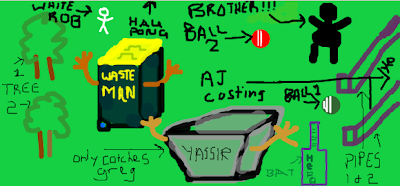Many people don't seem to be aware of this, but the current global economic recession is as much a product of fear as it is of underlying macroeconomic issues. In fact, if we gaze through history, we can identify countless tragedies that were brought about by the fear of the unknown and distrust of people and things that were different and unfamiliar. The burning of witches, the persecution of scientists by the Catholic church, the holocaust, religious wars and holy crusades... one could go on forever. Even today, conflict (both physical and otherwise) continues in certain parts of the world because people fear each other and are unwilling to attempt to understand and trust people that are different. The metaphor extends to organizations and institutions as well, just look at the US banking sector and various governments' reactions to the global recession.
But I digress... the reason this topic came to mind is far more recent and hits closer to home. Over the last month, a South African trade union (COSATU) attempted to block the public listing of SA's most prominent mobile telecommunications provider (Vodacom). Their public reasoning for this action was to prevent British company Vodafone from acquiring a controlling stake in Vodacom, because they feared that a foreign company would have no reason to care about South African employment, concerning themselves with profit margins instead, and jobs would be lost as a result. In an environment when job losses are almost inevitable, they had no concern about South African controlled Vodacom shedding jobs, but once a foreign country had control they FEARED job losses.
It appears however, that the true reasons for COSATU's (who are firm political allies of the ANC) actions actually make even less sense. It turns out that prominent members of a rival political party (COPE) stood to gain substantially from the R22.6 billion deal's success. So the actual motivation for blocking the listing of Vodacom was to prevent these individuals from making money that could end up in the coffers of COPE. To me, this reasoning is astounding. They were so afraid of money flowing towards a rival political party that they tried to block a massive R22.6 billion deal. Not only that, but they managed to persuade the supposedly 'independent' regulatory body to reverse their earlier decision and object to the listing as well!
The big issue here, is that if COSATU had succeeded, it would have been a significant blow to an economy already in recession. Without boring you with economic details, South Africa depends on foreign cash flows to finance a substantial deficit in our current account (imports minus exports). A successful action by COSATU would have resulted in significantly reduced investor confidence, most likely resulting in seriously diminished capital flows into SA. Something that would have hurt South African workers as a whole substantially more than most people realise. The same South African workers, whose interests COSATU claims to represent.

No comments:
Post a Comment